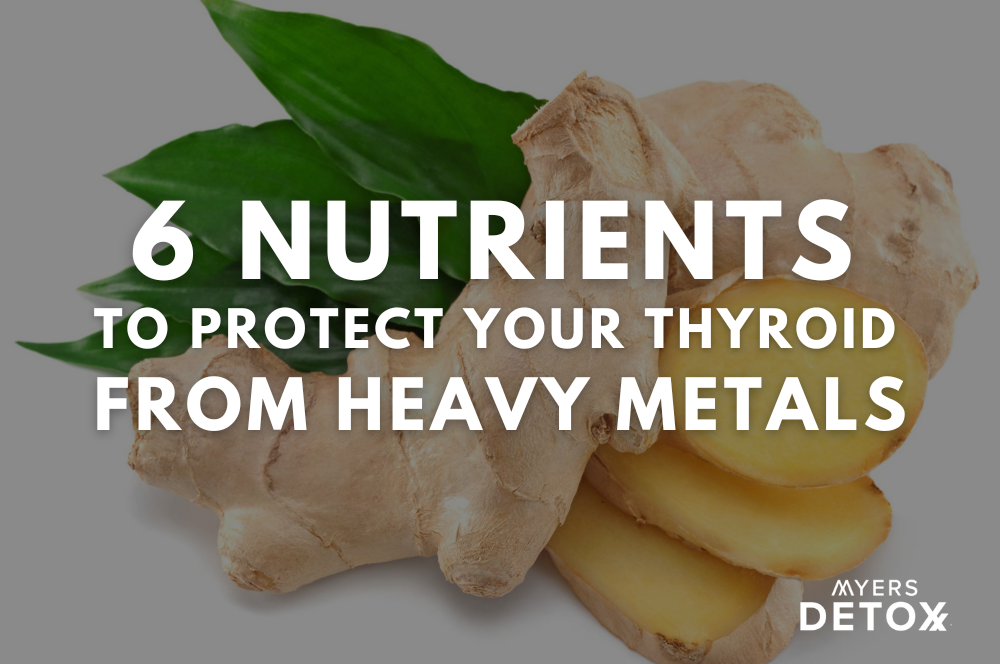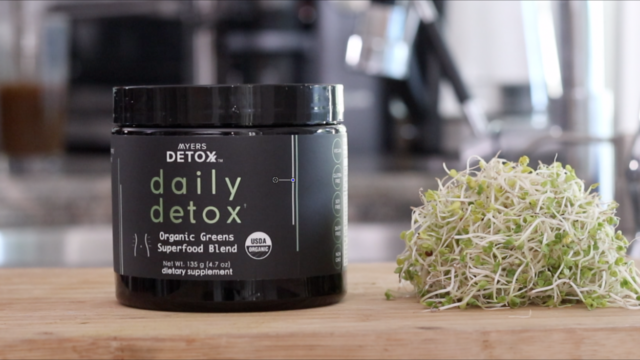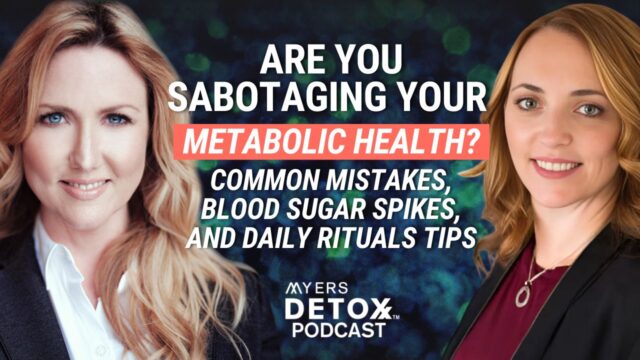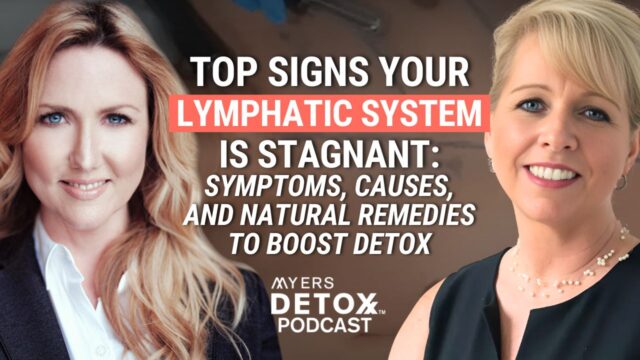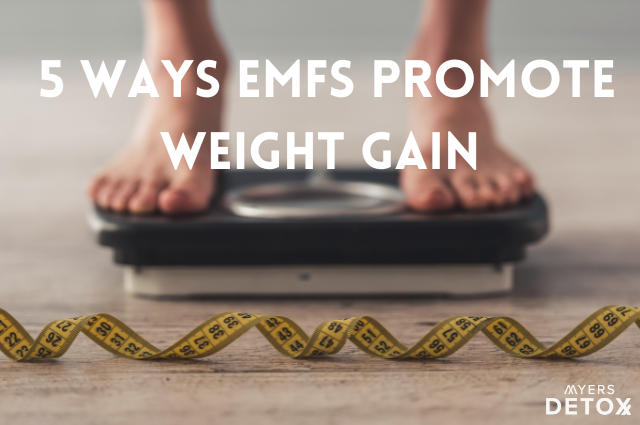It’s currently estimated that around 20 million Americans have some type of thyroid disease, with many people walking around completely unaware that their thyroid is struggling[1].
Some of the most common symptoms of impaired thyroid function include weight gain, fatigue, lack of concentration, cold hands and feet, and hair loss. If you’re experiencing any of these issues, it may be time to take a look at your thyroid health.
While nutrient deficiencies seem to play a role in thyroid dysfunction, we have to ask ourselves, what else is going on?
Environmental pollutants are everywhere these days, and heavy metals are particularly concerning for the thyroid as they have an affinity for the thyroid and can interfere with essential nutrients that play a role in thyroid function.
In fact, I believe that mercury and other heavy metals are one of the top reasons thyroid hormone imbalance is such a big problem today, affecting hundreds of millions of people around the globe.
In this article, you’ll learn:
- Which nutrients are essential for healthy thyroid function
- How to naturally mitigate the downstream effects of heavy metal toxicity
- Which herbs and spices enhance thyroid health – especially for those that already have low thyroid function
- How specific nutrients can defend your thyroid against environmental toxins and assist in their elimination
- The number one thing you need to do every day to protect your thyroid gland from heavy metals
6 Nutrients To Protect Your Thyroid From Heavy Metals
#1 Selenium
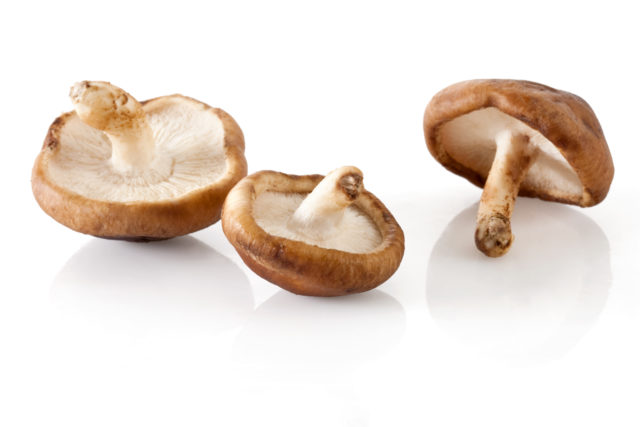
Selenium is an incredibly important nutrient for your thyroid due to its incorporation into selenoproteins. Selenoproteins neutralize free radicals that are generated during the production of thyroid hormones, which means that when selenium is low, the antioxidant defenses in your thyroid are also weakened[2].
For this reason, your thyroid contains more selenium than any other tissue or organ in your body.
Unfortunately, one of the ways in which selenium is depleted is through mercury toxicity. Mercury has a high affinity for your thyroid and specifically likes to latch on to selenium. When this happens, it renders selenium useless, and your thyroid hormone production takes a hit.
Selenium is also an essential nutrient for converting T3 to the more active form of thyroid hormoneT4.
Supplementing with selenium can enhance your thyroid’s antioxidant defenses and simultaneously support the conversion of thyroid hormone to its active form. Furthermore, studies show that adding selenium to your diet may help mitigate mercury toxicity in your thyroid gland[3].
Food sources of selenium: cordyceps mushrooms, shiitake mushrooms, Brazil nuts, tuna, eggs, and organ meats.
#2 Iodine
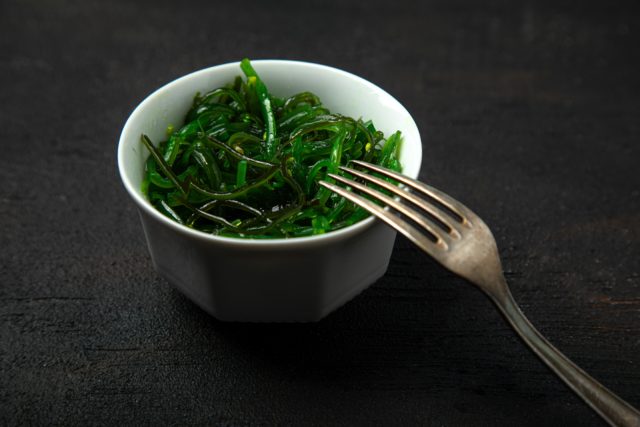
Iodine is another essential nutrient for thyroid function, as this mineral plays a crucial role in the production of thyroid hormones. In fact, low levels of iodine are one of the most common causes of hypothyroidism[4][5].
Unfortunately, iodine is a nutrient that can be hard to get in your diet, which is why we now have iodized salt that’s meant to keep the population replete since our food sources often fall short. But even ingesting iodized salt does not give you nearly enough iodine that your body requires. And I don’t recommend iodized salt anyways since it’s mostly sodium and doesn’t provide all the minerals that your body needs like sea salt does.
In addition to its role in thyroid hormone production, due to its chemical structure, iodine is also able to bind heavy metals like aluminum that can cause havoc in your thyroid tissue. Research also shows that people with low levels of iodine are more susceptible to mercury toxicity[6][7]. And mercury has an affinity for the thyroid gland, building up in the gland and interfering in thyroid hormone production.
Food sources of iodine: Seaweed, fish, and eggs.
#3 Curcumin
Curcumin is a well-known bioactive compound that’s responsible for many of the beneficial effects that we get from the spice turmeric. In fact, ancient systems of medicine have used turmeric as a healing plant for thousands of years due in large part to the profound impact that curcumin has in healing the human body.
One of the dangers of heavy metal toxicity is the inflammation and oxidative damage that these substances can cause in your cells and tissues. Curcumin acts as both an anti-inflammatory agent and an antioxidant, helping protect your cells against potential damage from metals[8].
Furthermore, research shows that turmeric may help to mitigate the development of goiters, which is an enlargement of the thyroid gland typically caused by iodine deficiency or inflammation[9].
Food sources of curcumin: Turmeric
#4 Sulforaphane
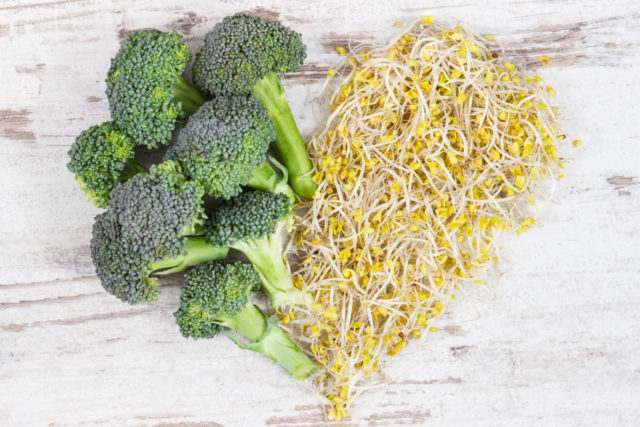
Sulforaphane is one of the most potent antioxidant compounds that’s found naturally in the human diet.
As mentioned, heavy metals can create a lot of oxidative damage in your body as your cells either try to neutralize or remove them from your system. Your thyroid is especially vulnerable to oxidative stress due to all the activity in this small gland, which means that when it’s bombarded with heavy metals, it can take a significant hit.
Studies show that consuming foods rich in sulforaphane can have a beneficial influence on the antioxidant balance of the thyroid, specifically in the case of hypothyroidism[10].
Broccoli sprouts are one of the richest sources of sulforaphane, but many people with thyroid issues steer clear of them due to nutrients called goitrogens which are known to contribute to the enlargement of the thyroid. But this isn’t true as long as cruciferous vegetables are cooked – this reduces the goitrogens. With that being said, studies show that broccoli sprouts are not only safe for thyroid health, but they exert beneficial effects due to their high sulforaphane content[11].
Food sources of sulforaphane: broccoli sprouts, broccoli, brussels sprouts, cauliflower, cabbage, bok choy, and kale.
#5 Ginger
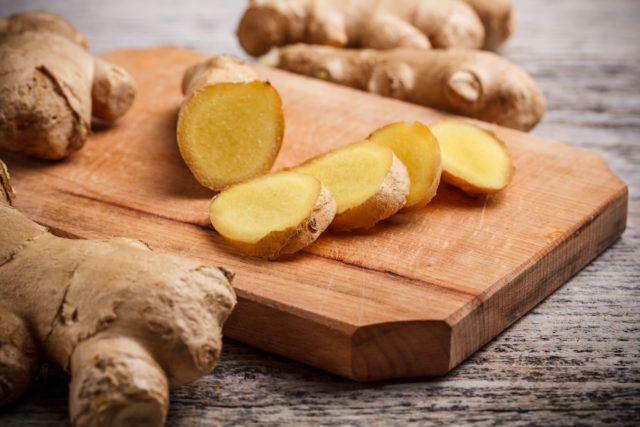
Ginger is an excellent spice for enhancing immunity, digestive health, and detoxification.
Studies show that ginger specifically assists with inhibiting the uptake and enhancing the elimination of the heavy metals cadmium, mercury, and lead – all of which can damage thyroid health and function[12][13][14].
Furthermore, studies show ginger may be an excellent ally for anyone struggling with a hypoactive thyroid. Hypothyroidism comes with a whole host of symptoms, including weight gain, cold intolerance, constipation, dry skin, and more.
In one study, participants reported significant shifts in symptoms of hypothyroidism when taking ginger, including[15]:
- Weight loss
- Reduced waist circumference
- Improved blood sugar
- Relief of constipation and dry skin
- Better cold tolerance
- Enhanced memory and concentration
- Less dizziness
Ginger contains many bioactive compounds that likely contribute to its beneficial impact on thyroid health, including phenolic and terpene molecules such as gingerols and paradols[16].
#6 Zinc
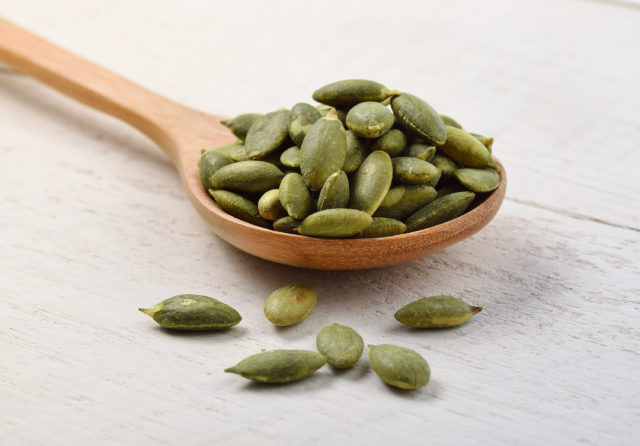
Zinc is another nutrient that plays directly into your thyroid’s health by assisting in synthesizing thyroid hormones. Interestingly, the health of your thyroid also impacts your ability to absorb zinc, which means that when zinc is low, you can get yourself into a negative spiral of both zinc and thyroid deficiency[17].
Furthermore, zinc is one of the most well-studied minerals for assisting in heavy metal toxicity. Due to its similar structure and chemical properties to cadmium and lead, zinc competes for binding sites with these two metals and interferes with their absorption[18].
Food sources of zinc: egg yolks, oysters, pumpkin seeds, red meat, hemp seeds, cashews, and dark chocolate.
A Thyroid Supportive Nutrient Blend In One Bottle
Mitigating environmental toxins can feel like a full-time job when you really assess the toxicity around us today. With that being said, some shortcuts and loopholes can make your life a whole lot easier when you know what you’re doing.
First, you need to know which nutrients are the most supportive for your specific needs, and second, you need to know the best sources of those nutrients.
Protecting your thyroid is the same thing as protecting your metabolism. This tiny gland is the ringleader for all of your metabolic processes, and when it starts to get overloaded, you feel it in a big way.
So, how do you get the thyroid support you need while also mitigating heavy metal exposure?
Through years of research and trial and error, I came up with an all-in-one solution called Daily Detox that’s tailor-made to help you reduce your toxic burden while also nourishing your cells. And as luck would have it, this blend is packed full of thyroid-supporting nutrients like:
- Cordyceps mushrooms for your selenium needs
- Dulse and kelp seaweed for your iodine
- Broccoli sprouts for your sulforaphane
- Ginger
- Turmeric
- Along with many others
Daily Detox is formulated with only the highest-quality nutrient sources, all backed by research, to assist your body’s detoxification processes while simultaneously nourishing your cells.
Takeaway
More people are struggling with thyroid issues today than ever before, and the toxicity in our environment absolutely plays a role.
Heavy metals have an affinity for your thyroid tissue, which means that once they get into your body, they can accumulate in your thyroid and slowly but surely interfere with its proper function.
Some of the most common symptoms of impaired thyroid function include weight gain, fatigue, lack of concentration, cold hands and feet, and hair loss. If you’re experiencing any of these issues, it may be time to take a look at your thyroid health.
With that being said, many people with the above symptoms have blood tests that show normal thyroid hormone levels in a normal range (compared with the rest of the population with poor thyroid hormones levels) when in reality, their thyroid is still sluggish and slow.
The nutrients in Daily Detox are ideal to be taken every day, but they will support your body on a cellular level that you will see and feel in your life. You can think of Daily Detox as your fail-safe for nutrient density, natural detoxification, and metabolic support.
*These statements have not been reviewed by the FDA. Daily Detox is a dietary supplement that is not intended to diagnose, treat, cure, or prevent any disease. Please talk to your doctor before beginning any new supplement regimen.


